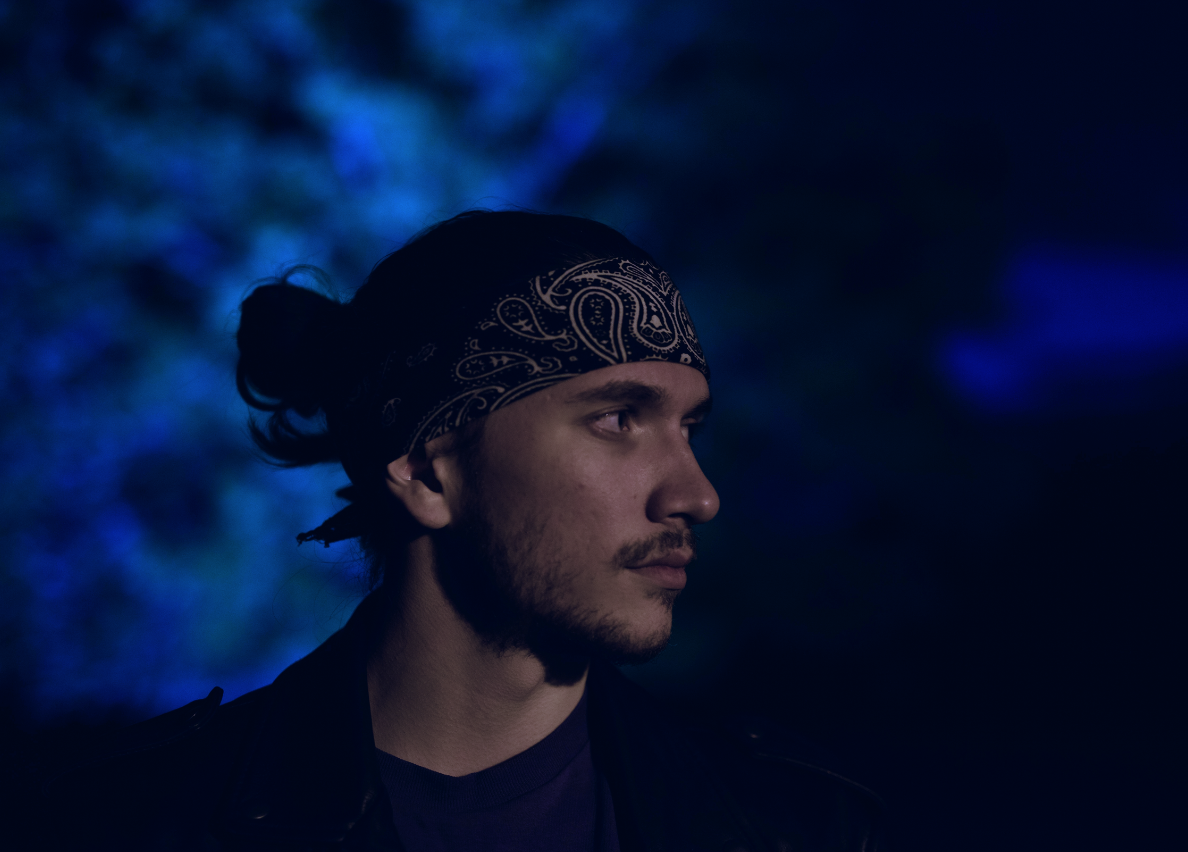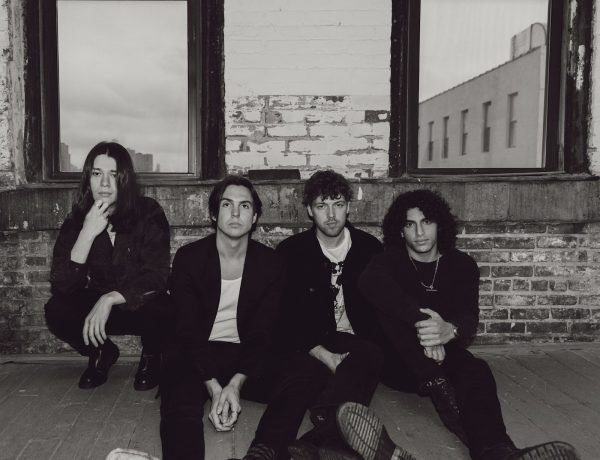Many of us are all too familiar with rejection when it comes to dating. And whether intentional or not, we’ve all probably ghosted someone at some point – or been left wondering why we were ghosted. Filmmaker M.H. Murray explores this sense of anxious abandonment in his new short film, Ghost, which follows a gay man, Benjamin, struggling to come to terms with the reality that he’s been ghosted by his lover, Simon. Murray believes that kindness and underscoring one another’s humanity is key to a more compassionate dating experience.
Cliché: What kinds of messages do you attempt to convey through your films?


M.H. Murray: I think that most of my work is about love, in some way, shape, or form. I’m interested in the way we as humans express or don’t express what we feel, and how those expressions or lack thereof can affect our interpersonal relationships. I am drawn to telling stories about queer characters who struggle with feelings of anxiety or loneliness, or people who feel isolated from others. Growing up, I definitely yearned for more queer characters on screen, especially in romance or horror movies, and I want to continue doing the work to help fill that void for the next generation.
Tell us about your new short film, Ghost.
Ghost is a short film about a gay Torontonian man named Benjamin (played by Mark Clennon), who is “ghosted” by his lover, Simon (played by Nykeem Provo). We follow Benjamin over the course of one day as he indulges in various distractions to avoid the painful sting of rejection. I’ve had this film bubbling around in my brain for years. When I met Mark, we clicked creatively, and this film was the perfect opportunity for us to collaborate, explore, and create something special together.
How was the experience of showing the film at the Seattle International Film Festival (SIFF)?
I was a bit bummed that the festival had to be virtual this year because I have always wanted to visit Seattle. I love the west coast. That being said, the virtual festival was awesome. The programmer, Cory Rodriguez, was a dream to work with, and I am so grateful to have had the opportunity to screen at a big festival like SIFF. I hope to screen there again and again and again.
The film features no spoken dialogue. Is this intended to be a commentary on the psychologically isolating effects of ghosting?
Definitely. I wanted to play with form and use things like framing and sound design choices to bring the viewer deeper into Benjamin’s mental space, and the choice to exclude any spoken dialogue, I think, heightens those feelings of dread that often manifest when you are waiting for something.
What difficulties have you found with modern dating? Would you say that dating in the LGBTQ+ community either magnifies these differences or presents its own challenges?
I don’t know. I like dating. I like meeting new people, getting to know them, learning about them. But I also think that being vulnerable and opening yourself up to someone else can be difficult. When you throw being gay into the mix, it complicates things even further. I remember being in high school and struggling with my sexuality and being a bit envious of my straight friends who didn’t have to worry about that extra layer that I had to worry about… The fear, the hiding, the societal pressure to come out, the bullying, all of that. I think many queer people in general have a hard time loving and accepting love because of the different ways our sexuality can expose us to harm as we grow up and because of the way people negatively perceive us and treat us. It can be hard to carry that baggage and to not let it colour the rest of your life and experiences. And I think all of that trauma sprinkles into the dating scene.
Why do you think so many people prefer ghosting nowadays? Would you say it’s the endless choice of dating apps and profiles making people more complacent about individual connections, or just general self-absorption?
I know that whenever I’ve ignored a message or left someone on read, it was usually a mistake or due to intense laziness. It is rarely personal. That being said, if someone hurts me and then they try to apologize or reach out, sometimes it does feel good to keep them waiting a little. I think every situation is different. But I think the problem I’m exploring in Ghost is when the communication isn’t there; when someone leads another person on emotionally and sexually and then leaves them hanging. Some people get a kick out of using other people and then dropping them, ignoring them, or making them squirm, which I think is messy.
Many times, the person doing the ghosting simply moves on without a second thought, but the healing process for the person who is ghosted can be much more complex. The main character of Ghost, Benjamin, deals with these feelings in real time throughout the film. Have you found the experience to be different from typical rejection, and if so in what ways?
I would say that being rejected, whether it is face-to-face or virtual, hurts. But I think with social media, sometimes everything can feel oddly heightened. We can see each other’s profiles; we are often documenting our lives in real time. Before cell phones, maybe the mystery made things easier. I don’t know. Sometimes being ghosted by someone you like is a blessing in disguise and sometimes they come crawling back—in fact, they usually do, in my experience. I think the best thing you can do in the face of rejection, like Benjamin does in Ghost, is to find solace in yourself, in your own body, in your own space. Whatever that looks like for you. And I would also prescribe a good binge watch to distract yourself. I recommend HBO’s Search Party.
Do you think the increasing role of technology in modern dating means that we have to more consciously buoy our own self-esteem from within and make an intentional effort to recognize the humanity of others as more than just an endless stream of profile pictures?
Sure. I think recognizing each other’s humanity is a key element of existing, for sure. When it comes to dating, I think it is important to move on from the social media/app phase as fast as possible and get to know the person behind the pictures. What do they do when a lull happens in a conversation? Things like that. Simple things like speaking on the phone, seeing each other in person, or even on FaceTime, can make everything feel more real, which is a good thing. It should feel real. Ultimately, I think we need to be kinder to each other because we will all die someday. Like Paddington’s aunt Lucy says ,“If we’re kind and polite the world will be right.”
Read more Celebrity Interviews on ClicheMag.com
Filmmaker M.H. Murray Examines The Anxiety of Modern Dating in New Short Film, “Ghost.” Photo Credit: Courtesy of M.H. Murray.
Filmmaker M.H. Murray Examines The Anxiety of Modern Dating in New Short Film, “Ghost.” Photo Credit: Courtesy of M.H. Murray.



